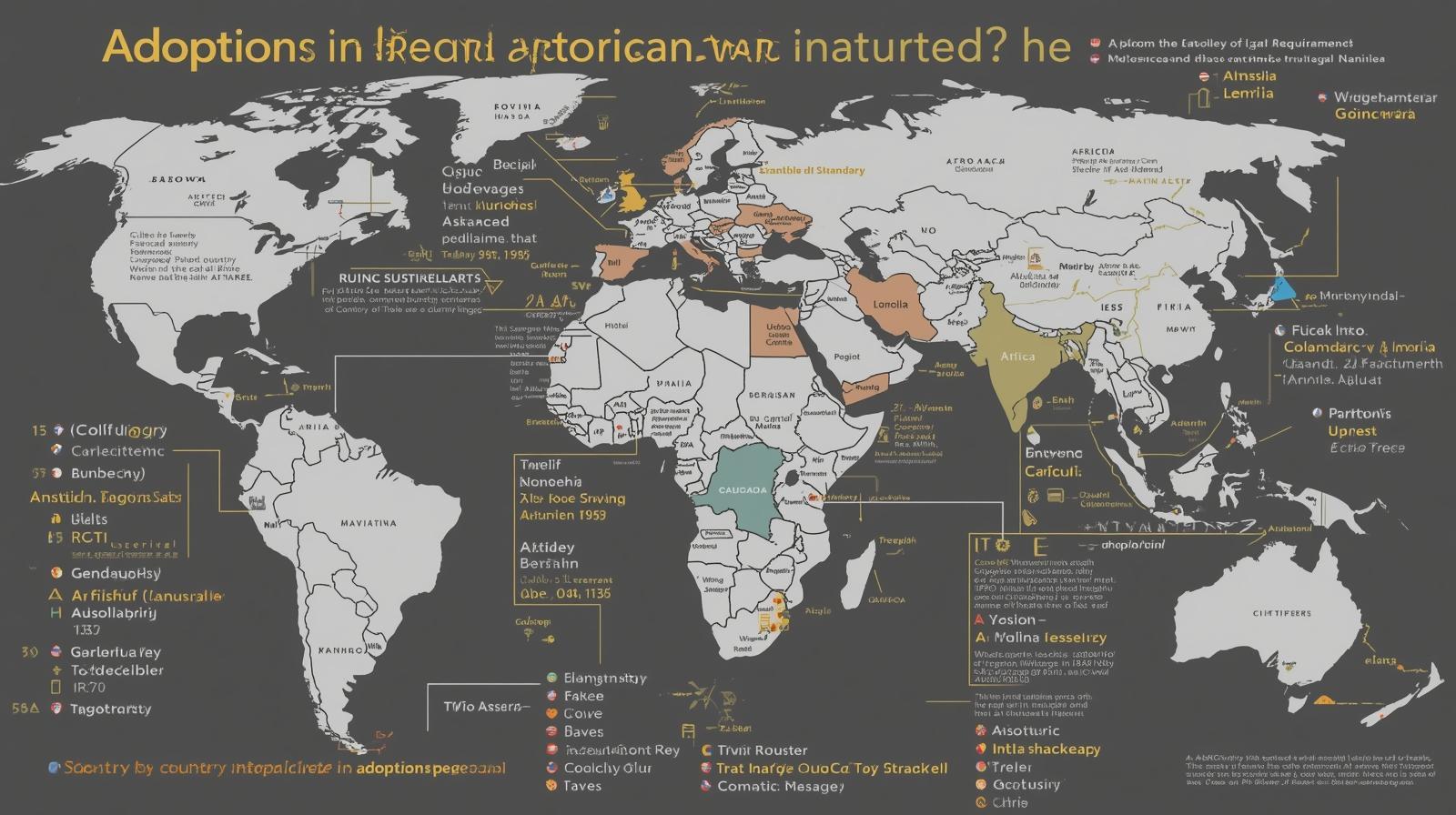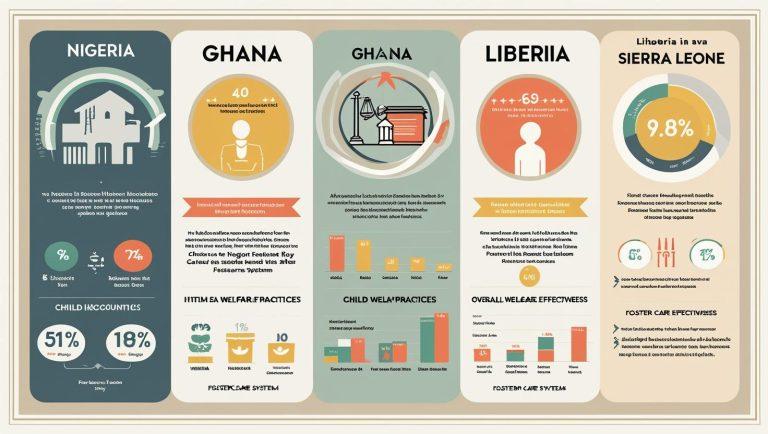Adoption law in Africa varies enormously by country, from well-developed, Hague-Convention-aligned processes to strict national-only systems or outright bans on foreign adoptions.
Quick primer: types of adoption and why the law matters
Domestic (national) adoption — adoption within the child’s country of origin. Governed by national family/child laws and usually handled by a national child welfare authority, local courts and licensed agencies.
Intercountry adoption — adoption where adoptive parents live in a different country than the child. If the child’s country and the adopting parents’ country are both parties to the Hague Convention on Protection of Children and Co-operation in Respect of Intercountry Adoption (1993), special protections and procedures apply; otherwise adoptions are governed by bilateral rules or national law. See the HCCH status table for which African countries are Hague contracting states.
Why this matters: eligibility rules (age, marital status, residency), paperwork (home study, criminal records, medicals), consent rules, and whether a country allows foreign adoptive parents differ widely. Always check the central authority or ministry in the specific country and get legal advice before proceeding.
How to use this guide
1. Read the country snapshots below for headline rules and special notes.
2. Use the general checklist (after the country snapshots) to prepare documents and avoid delays.
3. Contact the central authority / licensed agency in that country — links and citations are provided for the major countries below. If you want, I’ll expand any country into a full page with step-by-step forms and links.
Country snapshots ( high-interest countries)
South Africa — structured domestic + Hague intercountry framework
South Africa is party to the Hague Adoption Convention and has a clear statutory framework (Children’s Act; national adoption agencies and courts finalize adoptions).
There are separate procedures for national adoption (typically for South African citizens/residents) and intercountry adoption, which is handled through the Hague Central Authorities and accredited bodies.
Prospective parents must normally be screened via home studies and approvals. See government guidance and the U.S. Department of State summary for practical details.
Ghana — formal requirements, central adoption authority
Ghana requires a formal application to the central adoption authority and specific documents (home study, birth certificates, medical certificates, police clearance, evidence of marriage or spousal consent where applicable, references).
Ghana is a Hague contracting state (so intercountry adoptions follow Hague safeguards), and the Ministry has published forms and procedural checklists. Prospective parents must meet statutory age differences and other conditions under Ghanaian law.
Kenya — modern Children Act, tighter controls for intercountry adoption
Kenya’s updated Children Act (2022) modernized child welfare and adoption rules; it strengthens best-interest determinations and sets out who may adopt.
Intercountry adoptions have additional restrictions and, depending on reciprocity/arrangements, may be limited or temporarily unavailable with some countries — always check current status with Kenya’s authorities or the receiving country.
Ethiopia — largely closed to foreign adoption (strict limits)
Ethiopia has in practice tightly restricted or effectively suspended most foreign adoptions in recent years (historically a major source country but foreign adoptions were significantly reduced / restricted after abuse/trafficking concerns).
Domestic adoption rules remain, but international placement is highly limited and subject to government policy changes — verify with Ethiopian authorities or approved agencies.
Nigeria — national laws + anti-trafficking enforcement
Adoption is legal in Nigeria under relevant state and national laws, but procedures can differ across states. Recent years have seen increased focus on preventing illegal adoptions and trafficking; enforcement agencies (including NAPTIP and local courts) stress lawful, welfare-based processes.
Expect requirements like home studies, affidavits, court petitions, and criminal background checks; consult a reputable adoption lawyer or licensed agency in Nigeria.

Tanzania — residency and age/residency rules (mainland vs Zanzibar)
Mainland Tanzania’s adoption law (Law of the Child, 2009) sets out requirements: one prospective adopter must be at least 25 years old (and typically older than the child by a specified margin), and for non-citizens there are residency requirements (e.g., continuous residency for a period such as three years) before adopting.
Zanzibar and mainland Tanzania may have differing statutes — always check which legal regime applies.
Uganda — domestic framework; intercountry possible but controlled
Uganda has domestic adoption procedures and in some cases allows intercountry adoption but with strict screening and safeguards.
The central child welfare authority supervises placements. Always confirm current practice with Uganda’s ministry or an accredited facilitator.
Additional notes — other countries & Hague status
• Some African countries are Hague contracting states (e.g., Ghana, South Africa, Benin, Botswana, Burkina Faso, Côte d’Ivoire, Eswatini, etc. — check the HCCH status table for the complete, current list). Parties and dates can change; always verify the HCCH status table for the latest list.
• Several countries either do not permit intercountry adoptions or have effectively suspended foreign placements. Policy evolution is common; check the central authority before making any plans.
General checklist for prospective adoptive parents (use before you start)
1. Decide domestic vs intercountry and check whether the child’s country is a Hague contracting state (HCCH list).
2. Contact the central authority or a licensed adoption agency in the child’s country — do not rely on private/online intermediaries. (Central authorities are listed on government sites or HCCH pages.)
3. Prepare standard documents: ID, birth certificates, marriage certificate (if applicable), medical certificate, police/criminal-record check(s), home-study report from an accredited social worker, references, proof of income/employment. Countries differ — some require spouse consent forms or minimum age gaps.
4. Home study & training: many countries require an approved home study and sometimes pre-adoption training or counselling.
5. Legal finalization: adoption must be finalized in accordance with the child’s national law and usually requires a court order; intercountry adoptions require follow-up reports in many cases.
6. Beware of illegal practices: trafficking and illicit adoptions occur. Use accredited agencies and verify court records, central authority approvals, and child origin documentation. Enforcement agencies in several countries have increased scrutiny.
Common eligibility themes across African jurisdictions
• Age of adoptive parent(s): Many countries require adoptive parents to be at least mid-20s (often 25+) and sometimes impose a minimum age gap between child and adopter.
• Marital status: Some countries allow single parents, others prefer or require married couples; some require the other spouse’s explicit consent.
• Residency: Non-citizens often must meet residency requirements (examples: Tanzania). For intercountry adoptions residency may be unnecessary but Hague safeguards then apply.
• Criminal background / health: Police clearance and medicals are typical.
Practical cautions and red flags
• Requests for cash payments outside official processes — immediate red flag. Legitimate agencies and courts will not ask you to “pay a family” directly for a child.
• No court order / no central authority involvement — do not proceed.
• Pressure to travel immediately or make large payments before paperwork — stop and verify.
• Vague origin documents — insist on certified birth records and legal termination of parental rights in the child’s country.
For protection and verification, use the HCCH list (if Hague applies), local ministry pages, and if relevant the sending/receiving nations’ foreign affairs or adoption central authority pages. 
Resources & official contacts (starter links)
• HCCH — Status table and central authorities (which countries are parties to the 1993 Hague Adoption Convention).
• Country pages (examples): U.S. Dept. of State Intercountry Adoption country information pages (helpful even if you aren’t a U.S. citizen — they compile practical rules): South Africa, Ethiopia, Tanzania, Uganda, Kenya pages.
• Ghana Ministry guidance (forms & process) — official PDF with required documents and process steps.
Please refer to my other adoption blogs for more details.





